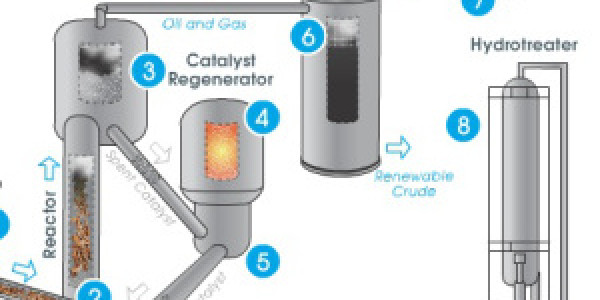by Katie Fehrenbacher AUG. 9, 2013 SUMMARY: Next-gen biofuel company KiOR misses its production targets from its new biocrude making plant by 75 percent. It’s still slow going for these companies trying to scale up and compete with oil. If you’ve ever read anything about the next-generation of biofuels — the ones made from plant waste, trash, or energy crops called cellulosic ethanol — then you know that they’ve forever been trapped on the brink of commercialization. The thesis still seems to apply for the young companies that are trying to scale up. This week KiOR, a venture capital-backed startup that went public in the Summer of 2011 , revealed in its second quarter earnings that it was about 75 percent below its forecast for producing and shipping its next-gen biofuel last quarter . KiOR shipped 75,000 gallons last quarter from its Columbus, Mississippi plant, but was hoping to ship between 300,000 and 500,000 gallons in the quarter. Revenue for the quarter was of course below estimates, too, alongside the slower than expected scale up in production. As a result, KiOR’s stock dropped almost 10 percent on Thursday, rallied a bit and is now trading around $4.14 on Friday. KiOR went public at $15 per share in mid-2011. But it shouldn’t come as a surprise to anyone that’s been following any next-gen biofuel startup. It takes eons to get to the scale where they can make biofuels for cheap enough to compete with oil. KiOR started producing its biocrude at the Columbus plant last November and started shipping it shortly after that. At the time KiOR CEO Fred Cannon called the first shipment “the world’s first cellulosic gasoline and diesel fuel products.” KiOR has developed technology that allows it to convert biomass (plants and bio waste) into a bio substitute for crude oil. The company emerged in late 2007 as a joint venture between Khosla Ventures and Netherlands-based biofuel startup BIOeCON . Khosla Ventures provided the early rounds of funding and BIOeCON provided the intellectual property for its “biomass catalytic cracking process,” a thermochemical process that’s been used in the oil industry for decades and which turns out can also produce biocrude from grass, wood and plant waste. Cannon has described KiOR’s technology as being able to do in seconds what has taken millions of years in nature (the natural process of how biomass has been crunched into oil). About a year ago I wrote a really long indepth piece on KiOR. Check it out here: The perils of cleantech investing: KiOR and the long term, high risk view . Taylor Scott International
The Slow Creep Of Next-Gen Biofuels: KiOR Misses Production Targets

This entry was posted in Investment, investments, News, Property, Taylor Scott International, TSI, Uk and tagged biofuel, creep, fehrenbacher, investment, investments, press-releases, production, technology. Bookmark the permalink.







